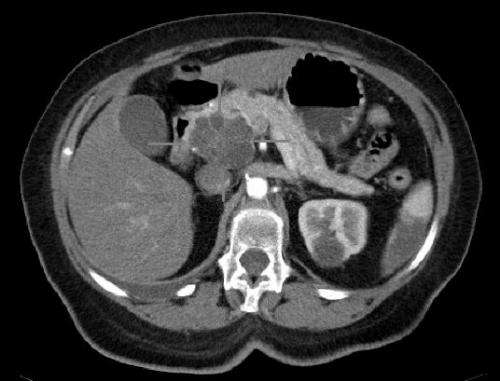Harnessing Gut Bacteria for Early Detection of Pancreatic Cancer

Emerging research reveals that analyzing gut bacteria from stool samples offers a promising, non-invasive method for early detection of pancreatic cancer, potentially saving lives through timely diagnosis.
Your pancreas, an essential organ behind the scenes, works tirelessly every day to produce enzymes vital for digestion and hormones that regulate your metabolism. However, when issues arise within the pancreas, the outcomes can be serious and life-altering. Pancreatic cancer, often called "the silent killer," is notorious for its subtle onset, with symptoms frequently overlooked or dismissed until the disease has advanced considerably.
In the UK alone, more than 10,700 new cases of pancreatic cancer were diagnosed between 2017 and 2019, resulting in approximately 9,500 deaths, with incidence rates steadily increasing. The most prevalent form, pancreatic ductal adenocarcinoma (PDAC), originates in the pancreatic duct that connects the gland to the small intestine. Tumors here can obstruct the flow of digestive enzymes, leading to energy metabolism issues that leave patients feeling chronically exhausted and unwell. Due to the subtlety of early symptoms, diagnosis often occurs late, limiting treatment options.
Scientists are now exploring an unexpected but promising approach to early detection: analyzing fecal samples. Despite the initial skepticism about examining stool for cancer diagnosis, research reveals that our waste contains a wealth of information about our health status.
This is because the gut hosts trillions of bacteria—outnumbering human cells by roughly 40 trillion to 30 trillion. These bacteria form complex communities, or microbiomes, which reflect the body's overall health, including the presence of disease. Since PDAC develops in a part of the pancreas connected to the gut, stool samples provide a non-invasive, practical window into what's happening inside the body.
International studies from Japan, China, Spain, Finland, and Iran have validated this innovative approach. Researchers collect stool samples and analyze bacterial DNA using 16S rRNA gene sequencing—a technique that identifies and quantifies different bacteria based on a specific genetic region. Results show that individuals with PDAC exhibit decreased bacterial diversity, with certain species being more or less prevalent compared to healthy individuals. Furthermore, AI models have been developed to accurately distinguish cancer patients based solely on their gut bacterial profiles.
Advancements in sequencing technologies, like shotgun metagenomic sequencing, are offering even more detailed insights. This method captures the entire genetic content of bacteria, revealing functional aspects and recent bacterial transfers, further enhancing diagnostic precision.
The expanding field of microbiome research is revolutionizing our understanding of health and disease. The emerging recognition of our microbiome as a vital component—coined "human plus microbiome"—underscores the importance of these microorganisms in maintaining health and detecting illness.
Beyond pancreatic cancer, these techniques are being applied to other cancers, such as colorectal carcinoma, utilizing advanced computational analysis to interpret bacterial genomes and functions from stool samples. The dynamic interactions between bacteria and diseases are complex: certain bacteria may signal disease presence, while disease states can alter microbiomes, creating a bi-directional influence that researchers are actively studying.
Innovations in biotechnology and AI are increasingly enabling scientists to decode this microscopic world, opening pathways for earlier diagnosis, personalized therapies, and potentially improved survival rates. These microbiome-based diagnostics, still in development, promise a future where early detection of silent, deadly cancers like PDAC could become routine, transforming patient outcomes.
As research progresses, the growing understanding emphasizes that the key to some of our most challenging medical questions might be hidden in plain sight—within the waste we excrete daily.
Stay Updated with Mia's Feed
Get the latest health & wellness insights delivered straight to your inbox.
Related Articles
Increase in Gun Violence in Popular Films Mirrors Rising Youth Homicide Rates in the U.S.
A recent study finds that increasing gun violence in top US movies closely mirrors the rise in firearm-related homicides among young people, highlighting media's influence on youth violence trends.
Innovative AI-Based Early Detection of Autism Spectrum Disorder Developed
Researchers have developed an innovative AI system that enables early detection of autism spectrum disorder in children, improving accessibility and intervention opportunities.
Understanding Mucus Color: Does Yellow Mucus Require Antibiotics?
Learn how mucus color and consistency can indicate infections and when antibiotics may be necessary, helping you understand your health better.
Innovative Approach Reprograms Brain Cancer Cells to Halt Spread
New research from the University of Cambridge reveals a groundbreaking method to halt brain cancer cell invasion by 'freezing' hyaluronic acid, potentially transforming glioblastoma treatment strategies.



